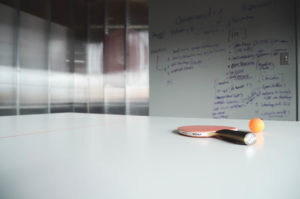Imagine yourself driving to someone’s house for a surprise birthday party. Every guest has been asked to arrive at a certain time to keep the surprise a surprise. You left home late. You’re in a hurry. You’re now focused on the road in order not to be late. You don’t want to miss the face of your friend completely surprised, between tears and laughter. You’re completely absorbed in one goal: to get there as soon as possible. You don’t have “time” to notice the surroundings. You’re all about the destination. There’s no real journey, because you’re not taking in what’s around. And if someone asked you whether on your way over you saw a house under construction a mile away from your friend’s house, chances are you’d say that you had not seen it because you were too focused on trying to be on time.
Now imagine yourself this time driving along the same road. The road goes through the Colorado Rockies. You’re here on vacation. This is the first time you’ve ever been in Colorado. It’s Sunday. You don’t have to be anywhere at a particular time. No real plan for the day besides reaching your next destination at some point, whenever you get there. You set out early. You have plenty of time ahead of you. Chances are this you will enjoy the spectacular scenery, very aware of what’s around you; you’ll notice the particular light on that day, the colors of the mountains, the vegetation, and many other minute details.
Same road, same person, two totally different attitudes; one is about the destination (result): the other is about the journey (play). So if we accept that creativity is essential in life in order to adapt to change and to keep evolving (whether as individuals or organizations), then we need to allow for and cater to the journey, the playfulness that defines the creative process. Being obsessed with results leaves out the playful, imaginative dimension of life. Our tendency is to focus too much on results, because our rational mind tells us that focusing on results is the best way to make good decisions. This focus also feels more comfortable and gives us a sense of control over the situation we’re in. This is why we tend to approach efficiency in a linear way. Yet in a highly complex environment, linear efficiency is not the answer.
It’s really not about results and play being in opposition. It’s about understanding the need for a collaborative synergy between play and results in order to reach a creative outcome. Obviously we need to get things done. But without a balance between the two, we run the risk of either never getting anywhere or getting someplace but not being aware of the changes in our environment. This is why it is important that in our approach to life, or a project, we keep a dynamic relationship between linear efficiency and the random nature of creativity.

